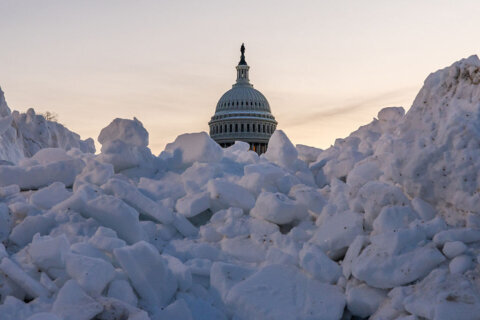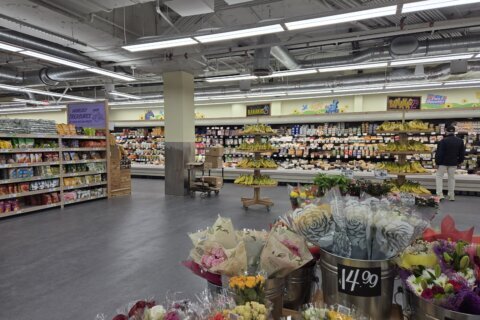The COVID-19 pandemic spurred a rapid shift to remote work as the threat of the coronavirus and stay-at-home orders shuttered offices and businesses across the D.C. region.
But even if only a quarter of employees continue working remotely post-pandemic, the impact of that shift could dramatically alter the region’s economy — including significant hardship for small businesses in D.C.’s downtown and questions about equity for workers whose jobs don’t allow them to work remotely.
That’s one of the take-aways of a new 40-page report from the Greater Washington Partnership, “Remote work in the Capital Region: Implications for the region and an inclusive recovery,” which was published Tuesday.
The study was conducted by Ernst & Young and takes a broad look at remote work in what it calls the entire “Capital Region,” which includes the major metro areas of D.C., Baltimore and Richmond and covers some 10 million residents.
“The effects of a moderate to substantial shift to remote work in the Capital Region will not be felt evenly across geography, industry or occupation,” the report concluded. “While remote-capable workers may benefit from a more flexible work environment and time saved on their commute, public services, smaller businesses, and restaurant and retail workers who historically relied on regular commuters will be required to adapt to a post-pandemic future of work.”
By the end of last year, the number of workers in the broader region who were working remotely full-time was 58%, according to the report, and even more workers were spending at least some time working from home. Overall, the D.C. region, actually has the nation’s second-largest pool of remote-capable workers — behind only the San Francisco Bay Area.
The report envisions two post-pandemic work scenarios. Under one of them, a “substantial” shift to remote work continues post-pandemic, meaning about 18% of the region’s workforce — more than 1 million people — continue working remotely three to five days a weeks. That would be five times higher than pre-pandemic levels. Under a “moderate shift,” about 14% of the region’s employees would continue working remotely, which is more than three times higher than pre-pandemic levels.
Such a “structural shift” to pervasive remote work could wreak havoc for small businesses in the urban cores of the broader region, where the spending by commuters could drop by as much 20% in downtown D.C.
Workers who commute into downtown areas typically spend $127 a week on food, drinks, entertainment and retail, according to the study. While small businesses in more residential districts may pick up some of the lost business as remote workers stay closer to home to make purchases, “there may not be a dollar-for-dollar reallocation in spending as remote workers may eat at home and undertake fewer work-related social activities,” the study concluded.
The remote work future is also unlikely to be evenly distributed geographically or demographically and could exacerbate existing inequalities, according to the report.
For one thing, remote-friendly jobs are clustered in certain industries, such as government, IT, business, finance and management.
Meanwhile, Only 16% of restaurant and retail workers in the region have college degrees, according to the study, — compared to 46% of the overall workforce and 67% of the current “remote-capable” workforce.
There are also demographic disparities.
The report says 56% of white and Asian workers have jobs that can be done remotely, compared to 41% of Black workers and just 28% of Latinx workers.
“The skills needed for remote work may pose challenges for the Capital Region’s Black and Latinx workers, where two-thirds of Black employees and three-fourths of Latinx employees do not have a college degree,” the report stated.








